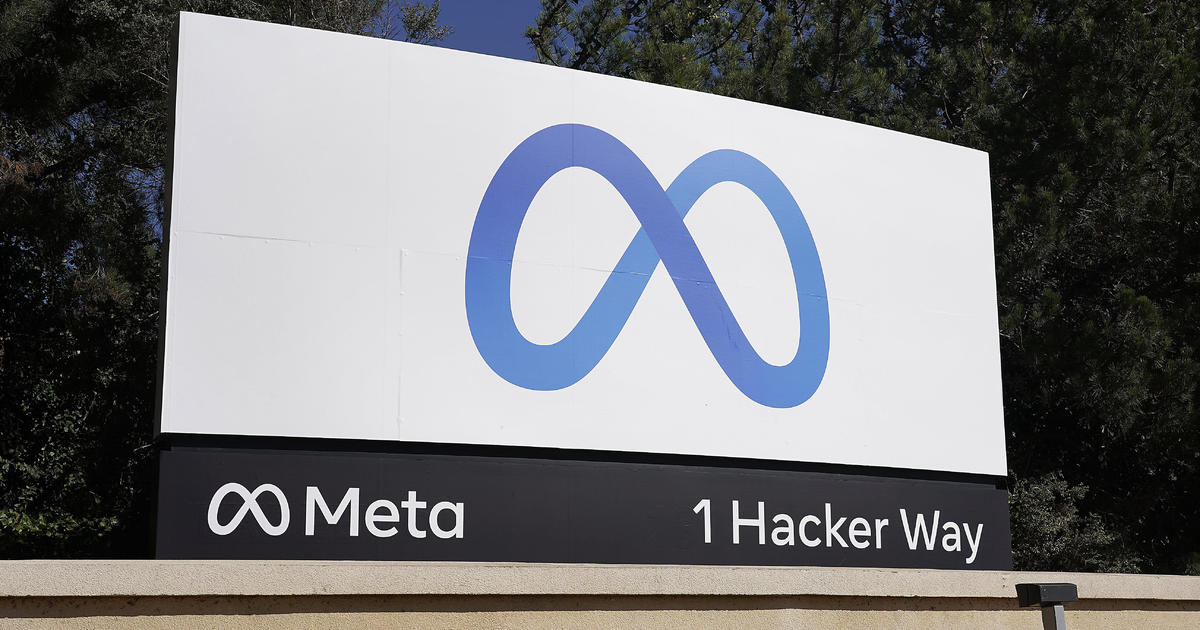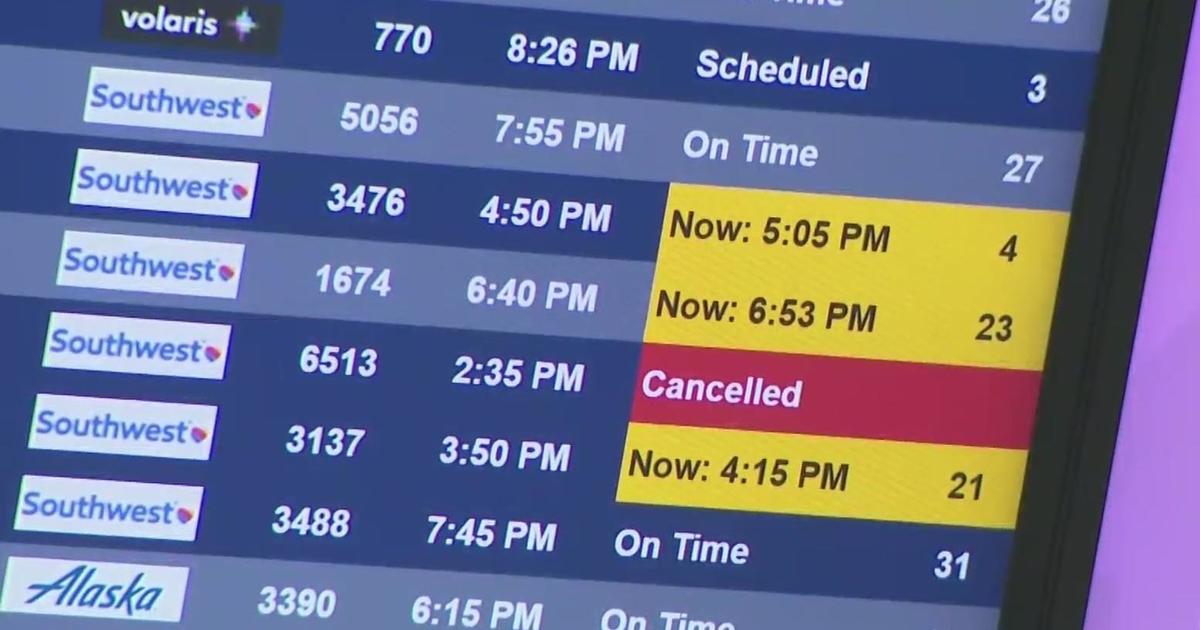Gov. Brown Seeks Tax Extension, Deep Spending Cuts
SACRAMENTO (CBS 5 / KCBS / AP / BCN) -- Gov. Jerry Brown proposed a "tough budget" for the coming fiscal year Monday that deals with the state's $25.4 billion budget gap by making deep spending cuts of $12.5 billion and extending for five years temporary tax increases that were enacted under the Schwarzenegger administration in 2009.
KCBS' Doug Sovern Reports:
In releasing his first budget plan, the newly elected Democratic governor said it contained tough medicine for nearly every Californian.
"These cuts will be painful, requiring sacrifice from every sector of the state, but we have no choice," Brown said.
He also said he wanted to end the types of accounting gimmicks, borrowing tricks and overly optimistic revenue assumptions that characterized the recent budgets signed by former Gov. Arnold Schwarzenegger.
"For 10 years, we've had budget gimmicks and tricks that pushed us deep into debt," he said. "We must now return California to fiscal responsibility and get our state on the road to economic recovery and job growth."
To close the state's ongoing deficit, Brown called for reductions in welfare ($1.5 billion to California's welfare-to-work program), social services ($750 million to the Department of Developmental Services), health care for the poor ( $1.7 billion to Medi-Cal), community colleges ($400 million), and a combined $1 billion cut to the University of California and California State University systems.
Brown also wants the Legislature to call a special election in June to give voters an opportunity to continue increases in the income, sales and vehicle taxes for five years. The taxes were approved two years ago next month and are due to expire this year.
The taxes, along with proposed shifts in funding, would generate $12 billion in revenue if voters agree to an extension.
Brown said his spending plan for the fiscal year that begins July 1 is intended to end the state's continual deficits and balance the budget for the next several years without borrowing money to do so.
"It's better to take our medicine now and get the state on a balanced footing," Brown told reporters in releasing his plan.
Among the hardest hit areas would be recipients of Medi-Cal, the state's health insurance program for the poor. Doctors' visits would be capped at 10 per year, a $5 office co-payment and a $50 emergency room co-payment would be added, and there would be caps on the annual benefits for items such as hearing aids and medical equipment. Brown also is seeking to eliminate the adult day health care program that serves about 27,000 Californians.
California's public colleges and universities would also suffer another round of painful funding cuts under Brown's budget.
Under the proposal, the 10-campus University of California system and 23-campus California State University system would each see a $500 million reduction in state funding in the fiscal year beginning July 1.
The funding cuts to California's 112 community colleges means that fees, among the lowest in the nation, would increase to $36 per unit from $26 to generate an additional $110 million.
The leaders of UC, CSU and California Community Colleges said the budget cuts could force them to raise tuition, turn away qualified students or take other draconian cost-cutting measures.
Brown said the only area of state spending he would protect is K-12 education, but that assumes voters approve the tax extensions. If they do not, or if the Legislature fails to muster the two-thirds vote needed to place the question on the ballot, cuts will be even deeper, Brown said, hinting that schools could be hard hit.
Republican lawmakers reacted negatively to the prospect of extending the tax increases. Most of them have signed a pledge pushed by anti-tax advocate Grover Norquist, who runs a Washington, D.C., nonprofit called Americans for Tax Reform.
The pledge said they will not support any tax increases.
"Well, this is going to be a nonstarter with the Republicans, and I think the people of California, as well," said Assemblyman Jim Nielsen, vice chairman of the Assembly Budget Committee. "If that were to be taken to the ballot, I think it would be resoundingly defeated.
"It's OK to put it up as a strategic proposal, but for that to be part of the final agreement, I do not see that as a reality."
Voters rejected an extension of those taxes in May 2009 as part of a complicated series of measures placed on the ballot by the Legislature and Schwarzenegger, whose popularity was plummeting at the time.
Democrats signaled some approval for the plan, which Senate President Pro Tem Darrel Steinberg, D-Sacramento, called "complete and balanced."
"As unappealing and painful as the governor's proposal is, the only thing worse is to allow this fiscal crisis to linger," Steinberg said.
Lawmakers will have to act quickly to place a special election before voters. Some Republican support in the Assembly and Senate will be needed because of the two-thirds rule.
Brown acknowledged that Republican lawmakers will be hesitant to support the ballot measure but said he was confident he could get enough support to push ahead with the special election.
He also said he expected help from a number of interest groups representing business, labor, education and community associations.
"I think there are a significant number of people who have an open mind," Brown said. "I think people will want to defend and protect California as they have come to understand it."
The tax extensions will be coupled with deep cuts to a state government that already has sustained years of recession-induced reductions.
Hundreds of people from various unions, community organizations and activist groups held rallies outside the state Capitol in Sacramento and the governor's office in Los Angeles, protesting the proposed cuts.
Leo Perez, 34, of Los Angeles, who suffers from multiple sclerosis and is in a wheelchair, held up a sign reading, "I am human."
He said he fears losing funding from the state's in-home supportive services program.
Brown defended his proposed spending cuts and tax extensions by saying, "Without decisive action, the state's severe budget problems will persist, threatening economic recovery, job growth, public education and the quality of life in California."
"The adoption of this budget will position the state to lead the country as it slowly recovers from the Great Recession," he said.
Brown also said he will undertake a "vast and historic" restructuring of state government, shifting a host of responsibilities from the state to counties and cities, "allowing government at all levels to focus on core functions and become more efficient and less expensive."
That includes eliminating redevelopment agencies and ending tax breaks available to businesses that operate in depressed areas designated as enterprise zones. Counties would also monitor parolees, keep low-level offenders in county facilities rather than state prisons, and take over child welfare services like adoptions and foster care.
If voters approve, revenue generated from the sales tax and vehicle license fees would go to local governments to help pay for the changes, but it is unclear where the money would come from when the taxes would end in five years.
The shift in responsibilities to local governments could also lead to massive job losses at the state level: as many as 4,000 jobs in corrections and hundreds in health and human services, Brown's budget proposal said.
The governor also is seeking an 8 to 10 percent cut in pay for state workers who aren't covered by union-negotiated contracts, which he said would save the state about $308 million.
That actually could be an improvement for some state employees who currently are furloughed three days a month, said Patrick Whalen, general counsel for California Attorneys, Administrative Law Judges and Hearing Officers in State Employment, one of six unions operating without a contract.
Brown also wants a $1 billion rainy day fund.
Brown is proposing an $84.6 billion general fund budget, slightly less than the $86.5 billion adopted under former Gov. Arnold Schwarzenegger's last budget.
The state's general fund revenue comes largely from sales, income and corporate taxes.
(© 2011 CBS Broadcasting Inc. All Rights Reserved. This material may not be published, broadcast, rewritten, or redistributed. The Associated Press and Bay City News contributed to this report.)



